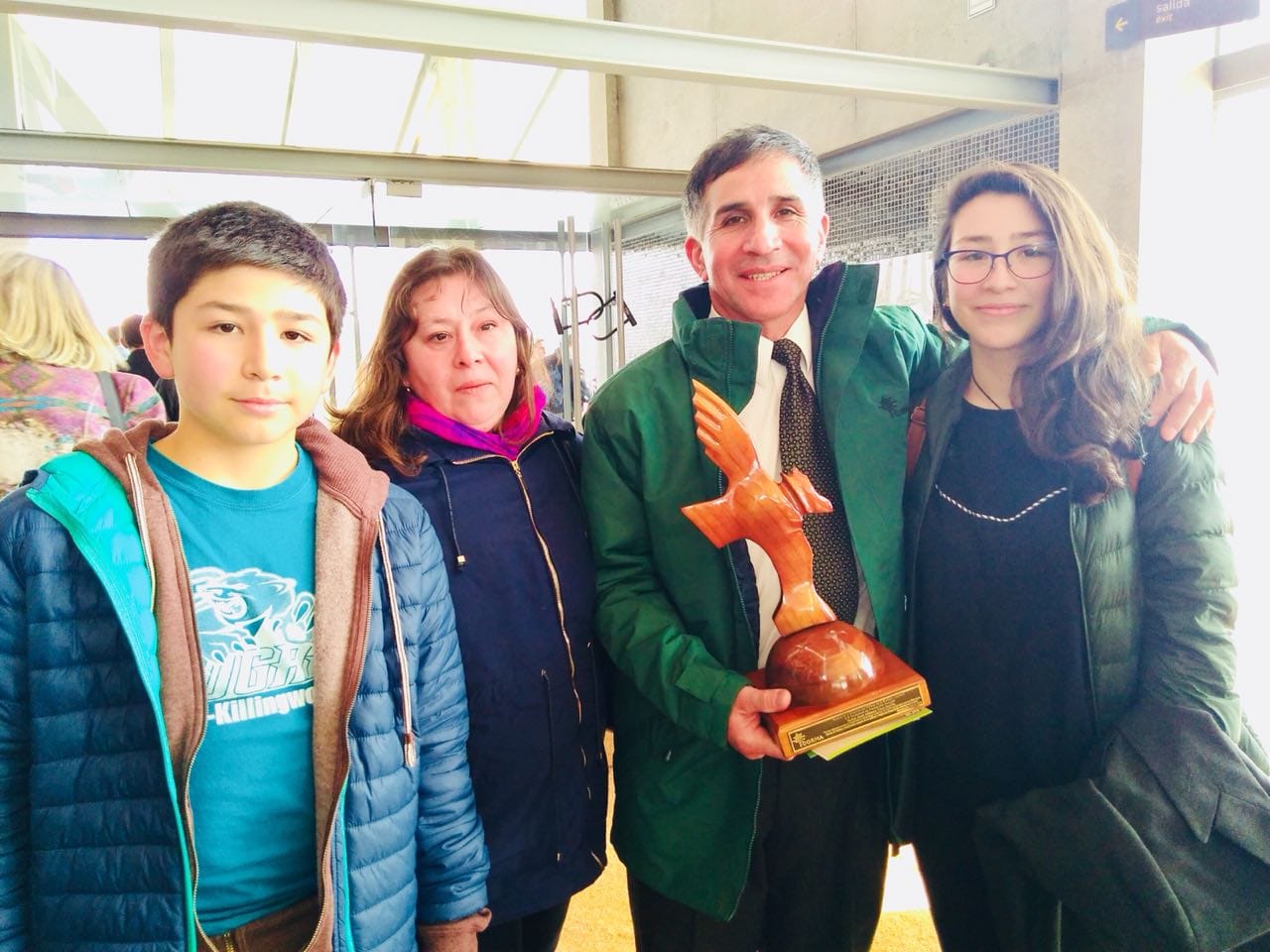José Silva is rather shy, speaking in short phrases, but when discussing his work, the words come more easily. At 54 years old, married with three children aged between 27 and 15, he now reflects on his forestry career, where he has been distinguished and recognized with a Corma award.
Without finishing his basic education, at 19, one of his many brothers took him to his first job sorting lumber with oxen in a forestry worksite. From Quilacoya in Hualqui, his hometown, he crossed the Biobío River to Santa Juana. "My first job lasted seven months, but it was very tough. At first, I wanted to leave. The animals were more important than us—it was very demanding early on. I had to walk a lot, but then I joined another company as a 'estrobero' (brush clearer)," he recalls.
Don José has worked in nearly every forestry role since the early days of this vital productive sector in southern Chile. "After being a brush clearer, I learned to use a chainsaw, then worked on a skidder with a winch. I spent six years working for Sefore, where I did all those jobs. Then I took a one-year sabbatical from forestry, doing some business with a brother, but I returned and haven’t stopped since," he adds.
After that stint as a merchant, he returned to forestry in '95 with KBM, a company just starting out—"with the manager and two workers. We worked in Los Ángeles, and I had to travel to Quilacoya every six days. I operated a skidder, preparing the soil for tree planting. Then, in 2000, the boss told us that whoever stayed would have to move to Los Ángeles—and here I’ve been for 22 years. It was a year of changes because I also got married."
"Now I take things day by day. There came a point where I stopped planning ahead—I just live in the moment. If this ends, well... What I would like is a lighter job, alone, without people."
"Thank God, I haven’t had any attacks in recent years—it was worse before. Back then, they’d come to the worksite, talk to us, and demand things the company couldn’t provide. Now they don’t come to burn things or shoot bullets and all that."
"It’s an opportunity for someone with little education—a chance to build a life. Their progress and good wages will depend on them. I encourage young people to put in the effort. If they apply themselves, their success is up to them."
He has held nearly every forestry role, witnessed the start of wood chipping at KBM, and climbed the ranks to become a worksite leader today. "I worked as a chipper until 2010, then the boss invited me to be a worksite leader. I did that for four years, returned to chipping for a while, and when the KBM Norte project started, they considered me as leader again. Working with people requires balance—as a chipper, I did my job and left. Now, I have to look after the team, stay on top of daily happenings, and invest more time in work," he explains.
"I’m happy because I’ve achieved many things—I have my home, stability, my family. Moving to Los Ángeles was a big step forward. I like this city, and at work, I come home every day, which is also good. They pick us up and drop us off at our doors. In my shift, there are seven of us harvesting eucalyptus in Mulchén. The estate we’re on is spectacular because we stay for six months—less moving around. We’re like a circus, setting up and dismantling camp."
Don José Silva recommends forestry work "because the conditions today are impressive, and wages are higher. At KBM, it’s mostly young people joining to learn and operate machinery. Now, there’s a system where the more they learn, the more they earn—that’s motivating. The work is hard, and it gets cold, but there’s space for women too. They offer training, and in our worksite, teamwork is key—we support the new generations a lot."
Over the years, while working, he completed his education and is now considered one of the most valuable employees at the company he’s been with for over 25 years. As for the future, he doesn’t have many expectations—just enjoying his family and living day by day.







Comments (0)
No comments yet. Be the first to comment!
Leave a comment